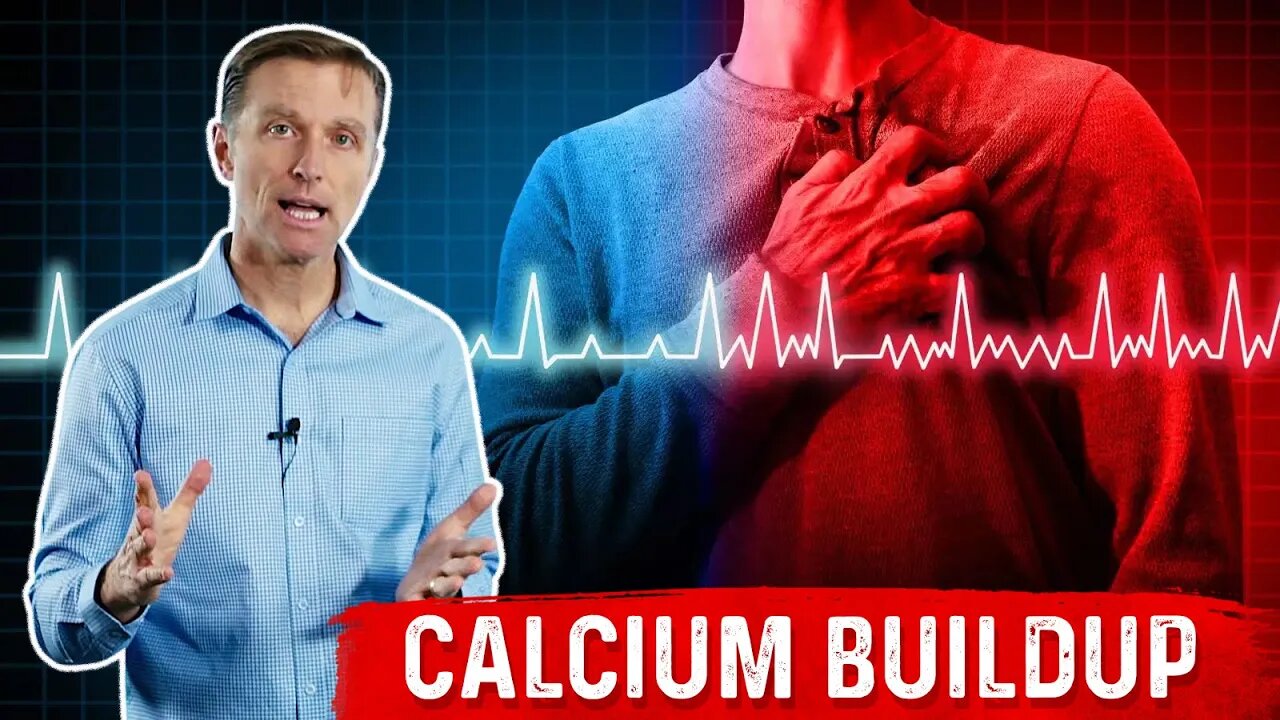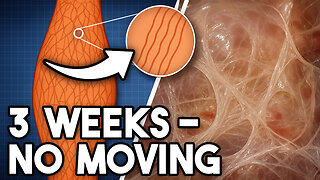Premium Only Content

Arrhythmias Are Excess Calcium
Heart arrhythmias? It could be due to excess calcium. Here’s why.
DATA:
https://bmccardiovascdisord.biomedcentral.com/articles/10.1186/s12872-018-0954-6
https://diabetes.diabetesjournals.org/content/67/Supplement_1/453-P
https://www.mc.vanderbilt.edu/reporter/index.html?ID=4995
Timestamps:
0:00 Cardiac arrhythmias and too much calcium
0:42 What are electrolytes?
1:15 Heart palpitation triggers
2:20 How to prevent too much calcium in cells
3:51 What causes magnesium deficiency?
4:47 Other causes of too much calcium
5:37 What to do for heart arrhythmias
In this video, we’re going to talk about heart arrhythmias and how they relate to excessive amounts of calcium in your cells.
Arrhythmias are a problem with the rhythm of your heart. This could be a minor palpitation or a major atrial fibrillation—and anything else that involves an irregular heart rhythm.
The most common cause of arrhythmias is excess calcium stuck in your cells—this is why many arrhythmia medications are calcium channel blockers.
Calcium is one of many electrolytes that supports the function of your heart:
• Sodium controls the “spark”
• Calcium controls the “squeeze
• Magnesium controls the “relaxation”
There are many common triggers for heart palpitations:
1. Caffeine
2. Alcohol
3. Sugar
4. Stress (cortisol)
5. Electrolytes (magnesium)
6. Low vitamin D
7. Chocolate
8. Drugs
Each of these will affect calcium physiology—which can cause palpitations.
You can control how much calcium is in your cells with magnesium. Any imbalance of electrolytes can have a short-circuiting effect, which throws off the systems in your body and causes palpitations.
Low magnesium could be a result of insulin resistance or consuming too many foods high in sugar and carbs. It could also be a result of not consuming enough magnesium in your diet. Most magnesium comes from leafy greens.
Other causes of high calcium in the cells are:
• K2 imbalance
• Vitamin D imbalance
• Potassium imbalance
Take a look at your diet and lifestyle habits and see if any of the things I mentioned above could be triggering heart arrhythmia. It may take some trial and error to figure out a solution.
Talk to a Product Advisor to find the best product for you!
Call 1-540-299-1556 with your questions about Dr. Berg's products. Product Advisors are available Monday through Friday 8am-6pm and Saturday 9am-5pm EST.
* At this time, we no longer offer Keto Consulting and our Product Advisors will only be advising on which product is best for you and advise on how to take them.
Dr. Eric Berg DC Bio:
Dr. Berg, age 56, is a chiropractor who specializes in Healthy Ketosis & Intermittent Fasting. He is the author of the best-selling book The Healthy Keto Plan, and is the Director of Dr. Berg’s Nutritionals. He no longer practices, but focuses on health education through social media.
Follow us on FACEBOOK: fb.me/DrEricBerg
Send a Message to his team: m.me/DrEricBerg
ABOUT DR. BERG: https://bit.ly/2Acht4C
Disclaimer:
Dr. Eric Berg received his Doctor of Chiropractic degree from Palmer College of Chiropractic in 1988. His use of “doctor” or “Dr.” in relation to himself solely refers to that degree. Dr. Berg is a licensed chiropractor in Virginia, California, and Louisiana, but he no longer practices chiropractic in any state and does not see patients so he can focus on educating people as a full time activity, yet he maintains an active license. This video is for general informational purposes only. It should not be used to self-diagnose and it is not a substitute for a medical exam, cure, treatment, diagnosis, and prescription or recommendation. It does not create a doctor-patient relationship between Dr. Berg and you. You should not make any change in your health regimen or diet before first consulting a physician and obtaining a medical exam, diagnosis, and recommendation. Always seek the advice of a physician or other qualified health provider with any questions you may have regarding a medical condition.
Thanks for watching, I hope this video helped clear up why arrhythmias can be caused by excess calcium.
-
 7:24
7:24
Dr. Eric Berg
7 days agoThis Is Why I Stretch EVERY DAY (FASCIA) – Dr. Berg
6.86K8 -
 LIVE
LIVE
EXPBLESS
3 hours agoBig Robots Shooting Eachother Seems Pretty Fun - Steel Hunter's LIVE
30 watching -
 25:29
25:29
The Dr. Ardis Show
1 day ago $2.48 earnedThe Dr. Ardis Show | Economic Update with Kirk Elliot | Episode 05.30.2025
6.4K2 -
 10:27
10:27
Professor Gerdes Explains 🇺🇦
1 day agoEx CIA Director: This Nation is Putin's NEXT Target Urgent Warning
1.87K5 -
 LIVE
LIVE
Biscotti-B23
2 hours ago🔴 LIVE SURPRISE BETA 🏆 CUSTOM MATCHES & ELITE RANK GRIND ⚽ REMATCH
32 watching -
 10:05
10:05
ARFCOM News
2 days ago $0.52 earnedCan They Track Your Prints? | CtrlPew BANNED | Short Barrels LEGALIZED | Corrupt Sheriff Sold Badges
2.25K11 -
 33:39
33:39
Tactical Advisor
1 day agoNew Handguns | Vault Room Live Stream 026
45.7K7 -
 23:25
23:25
MYLUNCHBREAK CHANNEL PAGE
22 hours agoMilitary Sites STOLE the Old World - Pt 2
91.3K59 -
 20:07
20:07
Clownfish TV
1 day agoMark Hamill's Sad Descent Into TDS...
33.2K46 -
 36:05
36:05
The Bryce Eddy Show
4 days ago $0.12 earnedNews with Siaka: Genocide Denial, Media Lies & Biden’s Cover-Up
1.56K1